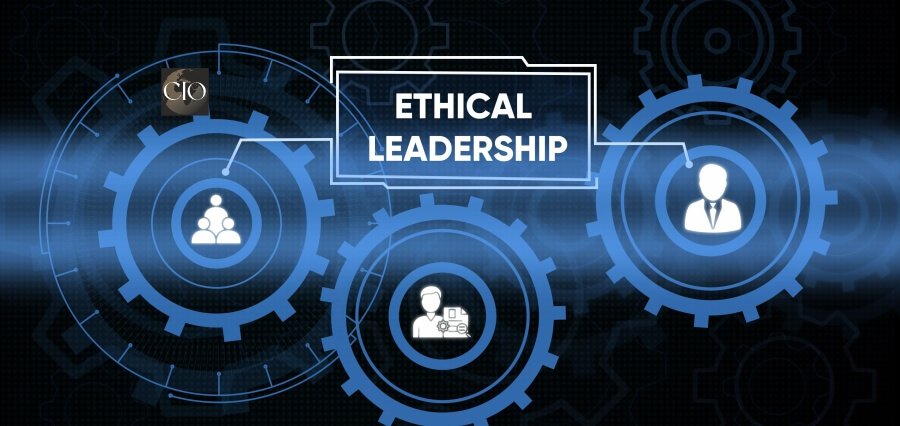Leadership Excellence
Leadership today has moved well past profit management and process optimization in today’s fast-moving, high-tech business environment. Stakeholders are demanding that business leaders step forward as models of ethical behavior, social stewardship, and open governance. Ethical leadership is no longer a buzzword or a CSR afterthought; it is a prime driver of long-term success and a powerful company culture driver.
Defining Ethical Leadership
It is not so much being in compliance with regulation and law that creates an ethical leader. It is being in compliance with doing the right thing even when it is difficult. Ethical leadership by definition is all about integrity, fairness, accountability, and compassion. Ethical leaders practice what they preach and close the gap between what they actually do and the publicly stated values and mission of the firm on a consistent basis.
Leaders develop trust—not through demanding, but through being real and making moral choices. Customers, employees, investors, and partners increasingly gravitate to companies where leadership is based on moral clarity and ethical stewardship.
The Link Between Ethical Leadership and Corporate Culture
Corporate culture is the invisible power which drives what employees see, touch, and do. It is a reading of practices, values, and attitudes within the fabric of the organization. Corporate culture relies on ethical leadership to form and sustain by instilling values within day-to-day operations, communications, and decision-making.
When transparency, inclusiveness, and ethical conduct are top priorities on the agendas of leaders, they set ethics standards in the company. Employees observe ethical decision-making created, acknowledged, and normative. It is a feedback process in which integrity is the norm and ethical issues are dealt with through shared responsibility.
For example, Unilever CEO Paul Polman’s leadership had a very purposeful and sustainable development direction. By embedding Unilever’s Sustainable Living Plan into operations and strategy, Polman not only built on Unilever’s brand reputation but also established a culture where business performance was hand in hand with social responsibility.
Building Trust and Employee Engagement
Maybe the most tangible return on ethical leadership is trust—interal and external trust. Those employees who see their leaders as ethical will be more motivated, committed, and involved. They have faith that their leaders will act in their best interests, and that the company will operate responsibly to customers, communities, and stockholders.
Report after report bears witness to the fact that there is a close link between employee retention and satisfaction and ethical leadership. The workers are more likely to stay in those organizations where they are accorded dignity and respect and where decisions are made transparently and democratically. Not only does this enhance morale but also innovation, cooperation, and productivity.
Moral leadership also impacts customers and investors. Companies with moral practice have long-term investors and loyal customers who believe that the company is sustainable and will last a long time. Growing popularity for ESG investing is proof of such a paradigm shift in stakeholder values, with preference given to companies with outstanding virtuous leadership.
Moral Challenges in the Contemporary Era
Values-driven leadership of the moral leader is more than ever called for in these days of technology disruption, value chains across the globe, and heightened social awareness. Data privacy, AI ethics, diversity and inclusion, and sustainability are difficult issues requiring thought-provoking values-based leadership.
Consider the increasing pressure on technology companies to safeguard data as an example. Moral leaders in such situations need to climb over walls with just obeying the law, but rather through a privacy-by-design culture, transparency acceleration, and customer trust. Likewise, even manufacturing and retail, the leaders need to make supply chains exploitation-free and establish ethical sourcing and fair labor non-negotiable pillars of their business.
It’s not a set of ad-hoc actions; it’s developing systems and cultures where the correct behavior is the norm. In doing that, there need to be clear codes of behavior, strong compliance programs, open channels for whistleblowers to report misbehavior, and ongoing ethics training for staff.
Long-Term Impact and Sustainable Growth
Ethical leadership eventually results in long-term growth through the establishment of a solid and lasting business. Businesses with ethics embedded in their business are better at containing crises, reputation risk, and market change. They are more attractive to like-minded employees and partners, entering the spiral of integrity and innovation.
That is the Johnson & Johnson business model. Their credo management philosophy where responsibility to the workers, the buyers, and society comes first has enabled them to weather times of upheaval and reap high stakeholder trust over centuries.
Conclusion: Ethics as a Strategic Imperative
Great leadership today cannot be divorced from ethical leadership. With greater business complexity and higher stakes, value-based decision-making and value-based strategy simply multiply. Ethical leadership is not holding society back; it accelerates it by creating trust, inspiring individuals, and creating brands that quite clearly have a competitive edge.
Those businesses that embed ethics in culture and strategy are not merely building better reputations—they build responsive, resilient organizations for long-term success.
As Warren Buffett so succinctly expressed it, “It takes 20 years to build a reputation and five minutes to ruin it.” Great visionaries recognize that purpose and principles are not amenities but the secret to leadership greatness and enduring impact.




